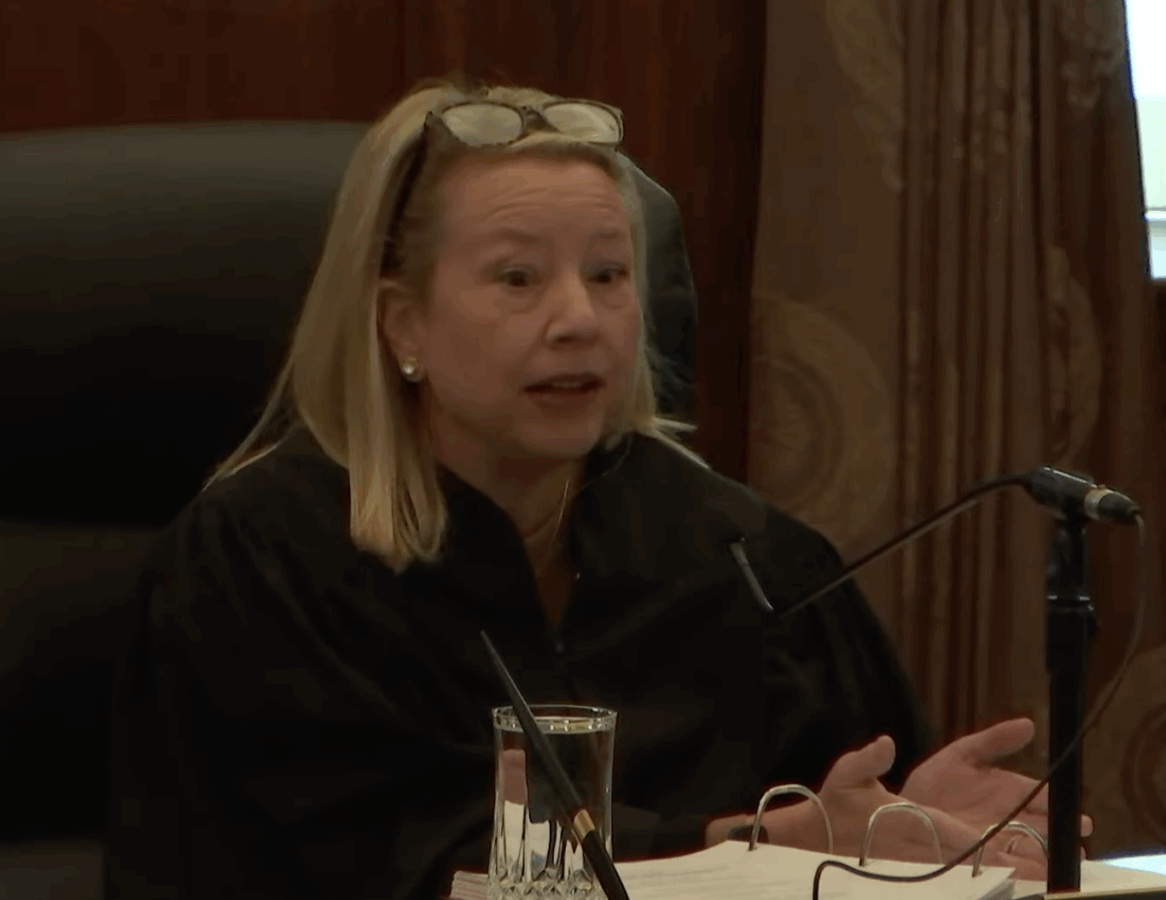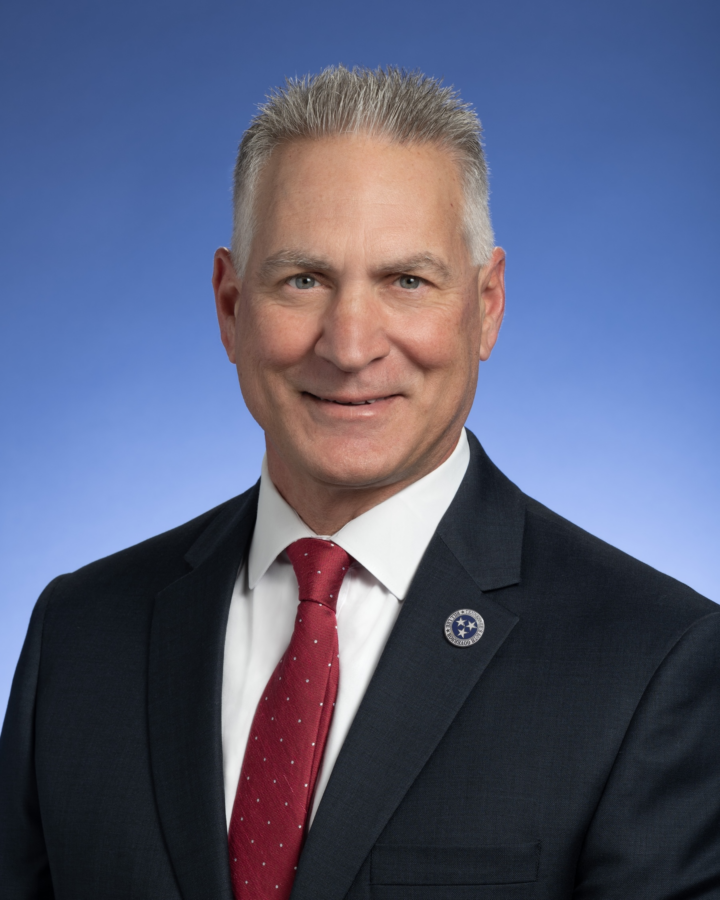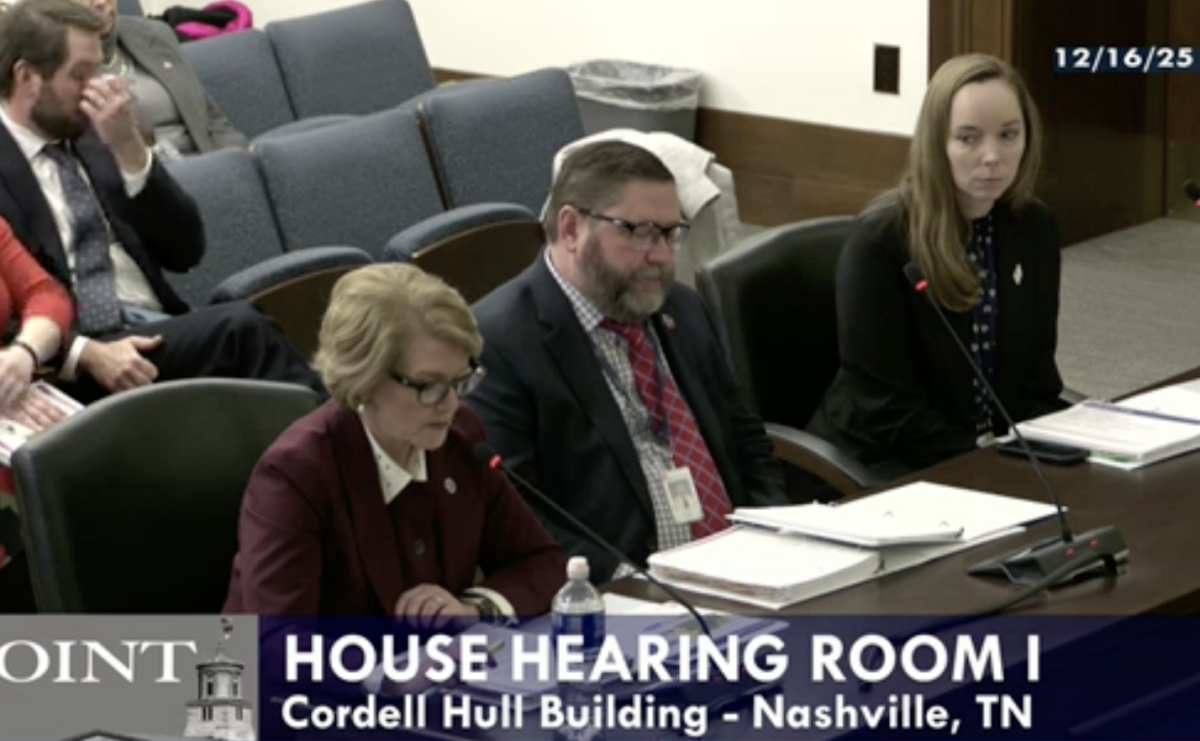Get to know Tennessee law
The Open Meetings statute allows members of certain types of governing bodies, such as state boards and commissions whose members live across the state, to participate in meetings electronically under certain circumstances.
Local governing bodies, however, are largely prohibited from allowing their county commissioners, aldermen, city councilmen and so forth to participate and vote in meetings by phone or video conference. The one big exception, enacted in 2012, is for members of local school boards under specific conditions.
During the COVID-19 pandemic in 2020 and 2021, Gov. Bill Lee temporarily allowed all governing bodies to meet electronically via video conference or phone to reduce physical gatherings and the spread of the deadly virus. The governor’s executive order required that the public have remote access to the meetings through a live video stream or audio stream. The order expired on April 28, 2021, and efforts to create a new law in 2021 to allow local governing bodies to continue to meet electronically failed.
The primary statute controlling electronic participation in meetings by members of governing bodies is T.C.A.§ 8-44-108, which largely applies to only state boards and commissions.
One key requirement in this statute is that the governing body must have a quorum in a physical place. In other words, a member or two might connect by video conference, but most of the governing body has to be physically present in a place where the public can attend.
However, state boards and commissions can avoid the physical quorum by making a determination of “necessity.” “Necessity” means “that the matters to be considered by the governing body at that meeting require timely action by the body, that physical presence by a quorum of the members is not practical within the period of time requiring action, and that participation by a quorum of the members by electronic or other means of communication is necessary…” In those cases, the governing body must make accommodations at a physical place where the public can attend and listen in to the phone call or video conference of the governing body.
The governing bodies with the most flexibility are boards of state universities, which don’t have to make a determination of necessity to meet without a quorum in a physical place. Still, even without a physical quorum in a physical place, a physical place has to be provided where the public can attend and hear or see the board members who are participating electronically.
The only type of local governing bodies that may conduct meetings with electronic participation by its members are school boards [(T.C.A. § 49-2-203(c)] and emergency communication district boards [T.C.A. 8-44-108 (d)].
For a school board member to participate electronically, a quorum of the governing body must be present at the physical location of the meeting and the board member attending electronically must be out of the county for work, experiencing a family emergency or serving in the military. The off-site member is required to be visually identifiable by the board chair. And board members taking advantage of this exception for out-of-the-county work must give at least five (5) days notice prior to the scheduled board meeting. In addition, each board member may only participate electronically in a meeting twice a year.
Members of emergency communication district boards, which are locally governed, are allowed by statute to participate electronically in meetings. Unlike state boards and commissions, they do not have to file a statement of necessity with the Secretary of State’s office and conduct roll call votes. Also, their members are allowed to receive their regular per diem payment when they attend electronically.
You can learn more detail about electronic participation in meetings in our second FAQ on this issue that outlines the historical progression of electronic participation in meetings from 1990 to 2020. It includes more detail and a copy of the current statutes.
In Tennessee, the open meetings law applies to “[t]he members of any public body which consists of two (2) or more members, with the authority to make decisions for or recommendations to a public body on policy or administration…” T.C.A. § 8-44-102 (b)(1)(A)
The Tennessee Supreme Court looked at the legislative history of the statute in the 1976 case of Dorrier v. Dark and gave a more comprehensive definition:
“(T)he Legislature intended to include any board, commission, committee, agency, authority, or any other body, by whatever name, whose origin and authority may be traced to state, city, or county legislative action and whose members have authority to make decisions or recommendations on policy and administration affecting the conduct of the business of the people in the governmental sector.”
This means that committees formed by a county commission, for example, are also subject to the rules of the open meetings law regardless of whether the committee is made up of citizens or public officials.
While the reach of the Open Meetings Act is wide when it comes to government, the Court of Appeals ruled in 2001 in Mayhew v. Wilder that it does not apply to the state legislature. Before this, many presumed the state legislature fell under the sunshine law. But the court noted that the legislature does not trace its origins to any legislative action and cited two provisions of the state constitution to conclude the law does not apply to the House and Senate.
- Article II, Section 22, of the Tennessee Constitution says the doors of the General Assembly shall be open except when the “business shall be such as ought to be kept secret.”
- Article II, Section 12, lets each chamber “determine the rules of its proceedings.” And, the court said, one two-year session of the General Assembly cannot bind the next.
Though criticized in editorials for “exempting themselves” from the sunshine law, both houses of the General Assembly have had rules that say the doors can be closed only for state and national security matters and certain impeachment proceedings. Read more about who is subject to the open meetings law.
The Open Meetings Act states that a meeting occurs when a “governing body of a public body for which a quorum is required” convenes “to make a decision or to deliberate toward a decision on any matter” [T.C.A. § 8-44-102(b)(2)].
Some gatherings of members of a governing body would not be considered a meeting under the law.
For example, the open meetings statute says that a “meeting does not include any on-site inspection of any project or program” [T.C.A. 8-44-102(b)(2)].
It also says that a “chance meeting of two or more members of a public body” is not considered a meeting as defined by the law. But in very strong language that echoes the principles underlying the law, the statute makes clear that:
…no such chance meetings, informal assemblages, or electronic communication shall be used to decide or deliberate public business in circumvention of the spirit or requirements of this part. [T.C.A. § 8-44-102(c)]
This section of the law has been among the most contentious, but Tennessee courts have been helpful in laying out the boundaries.
The distinguishing factor under the open meetings law is that either a decision was made by the governing body or public business was deliberated by its members. The courts have said that to deliberate means “to examine and consult in order to form an opinion” and “to weigh arguments for and against a proposed course of action.”
Courts also have found that the use of email can constitute a meeting when used by members of governing bodies to decide or deliberate public business. (Johnston v. Metropolitan Government of Nashville and Davidson County, Tenn. Ct. App. 2009).
In general, members of a governing body who try to circumvent the spirit or requirements of the open meetings law to decide or deliberate public business outside the public eye are likely to find themselves in conflict with state law.
The definition of a public record is broad in Tennessee. Public records are all records created or received by local or state government pursuant to law or as part of transacting official business.
In our workshops, we often ask beginning journalists, “When do you think a government record becomes a public record?”
The answer is worth remembering: As soon as it’s created or received.
Here is the key definition in the statute:
“Public record or records” or “state record or records”
(i) Means all documents, papers, letters, maps, books, photographs, microfilms, electronic data processing files and output, films, sound recordings, or other material, regardless of physical form or characteristics, made or received pursuant to law or ordinance or in connection with the transaction of official business by any governmental entity; and
(ii) Does not include the device or equipment, including, but not limited to, a cell phone, computer, or other electronic or mechanical device or equipment, that may have been used to create or store a public record or state record;… [T.C.A. § 107-503 (a)(1)(A)]
The form of the record does not matter.
However, not all records that meet the definition of public records are open for inspection. The law says that “[a]ll state, county and municipal records shall, at all times during business hours… be open for personal inspection by any citizen of this state, and those in charge of the records shall not refuse such right of inspection to any citizen, unless otherwise provided by state law.”
The caveat “unless otherwise provided by state law” is the trickiest part because the term “state law” has come to mean more than statutory exemptions created by the Legislature.
The Tennessee Court of Appeals in Swift v. Campbell (2004) that “law” can include “the Constitution of Tennessee, the common law, the rules of the court and administrative rules and regulations because each of these has the force and effect of law in Tennessee.”
The Office of Open Records Counsel on Jan. 30, 2018, released a report identifying 538 statutory exceptions to the Tennessee Public Records Act. Since then, the number of statutory exceptions alone has grown to nearly 600.
Tennessee law states that a records custodian is required to promptly make available public records that are not specifically exempt from disclosure.
This covers a lot of common public records that are readily available or can be retrieved quickly. For example, a government report included in a county commission’s agenda packet is obviously readily available — no searching required.
However, the law says that if it’s not practicable to make public records promptly available, the custodian has as many as seven business days to either provide the records requested, deny the request in writing including the basis for the denial, or provide a written response stating the time reasonably necessary to produce the information.
Here’s the specific statute [T.C.A. § 10-7-503(a)(2)(B)]:
(B) The custodian of a public record or the custodian’s designee shall promptly make available for inspection any public record not specifically exempt from disclosure. In the event it is not practicable for the record to be promptly available for inspection, the custodian shall, within seven (7) business days:
(i) Make the information available to the requestor;
(ii) Deny the request in writing or by completing a records request response form developed by the office of open records counsel. The response shall include the basis for the denial; or
(iii) Furnish the requester in writing, or by completing a records request response form developed by the office of open records counsel, the time reasonably necessary to produce the record or information.
One of the most common complaints from requesters is how long it takes to receive the records requested. But remember that the custodian is required to state in writing in no more than seven business days after you make the request how much time it will take the compile the records. A custodian who did not let the requester know how much time it would take would be in violation of the law. Likewise, the law puts some qualifications around the amount of time, stating that the amount of time must be “reasonably necessary.”
In 2016, a new law went into effect requiring, among other things, that all government entities in Tennessee designate a public records request coordinator.
According to the statute, T.C.A. 10-7-503 (a)(1)(B), the coordinator is the “individual within a governmental entity whose role it is to ensure that public records requests are routed to the appropriate records custodian and that requests are fulfilled in accordance with § 10-7-503(a)(2)(B).”
But if a citizen makes a request directly to a public records custodian, can the custodian require the requester to first go through the public records request coordinator?
For citizens, this can be viewed as a delay, especially if the coordinator is not available that day or in a different physical location from where the citizen is making an in-person request directly to the custodian.
Lee Pope, who heads the Office of Open Records Counsel in the state Comptroller’s Office, says the law still requires the custodian to fulfill requests even when the government entity has a public records request coordinator. In an Oct. 28, 2021, email responding to a TCOG question about this issue, Pope said:
“We’re aware that many governmental entities direct citizens in their local public records policy to submit requests to the local public records request coordinator, as that person is typically best suited to more expeditiously process public record requests submitted to a governmental entity. That said, however, Tenn. Code Ann. § 10-7-503(a)(2)(B) still provides that a records custodian shall promptly make public records available when practicable. Accordingly, we advise governmental entities that a records custodian is still obligated to promptly provide access to public records, but that it should also make the PRRC aware of the requests, as the PRRC is generally responsible for keeping up with requests submitted to local governmental entities.”
The statute being relied upon says this:
The custodian of a public record or the custodian’s designee shall promptly make available for inspection any public record not specifically exempt from disclosure. In the event it is not practicable for the record to be promptly available for inspection, the custodian shall, within seven (7) business days:
(i) Make the information available to the requestor;
(ii) Deny the request in writing or by completing a records request response form developed by the office of open records counsel. The response shall include the basis for the denial; or
(iii) Furnish the requester in writing, or by completing a records request response form developed by the office of open records counsel, the time reasonably necessary to produce the record or information.
State law allows government entities to require identification, such as a driver’s license, with a public records request. And some government entities will refuse to provide public records if the identification does not verify that the requester is a Tennessee resident.
Though the law doesn’t mandate identification, many government entities require it because they want to block having to respond to requesters who don’t live in Tennessee. (Tennessee statute requires public records be available to “any citizen of this state” but does not require they be made available to citizens of other states.)
Here’s what the law says about identification [T.C.A. §10-7-503(a)(7)(A)(vi)]:
(vi) A governmental entity may require any person making a request to view or make a copy of a public record to present a government-issued photo identification, if the person possesses photo identification, that includes the person’s address. If a person does not possess photo identification, the governmental entity may require other forms of identification acceptable to the governmental entity.
TCOG did a 2018 audit of identification requirements in Tennessee and found that an overwhelming majority of local and state governing bodies had voted to adopt policies with rigid identification requirements. Some have clung to the requirement even in absurd situations. For example, a Blount County commissioner who didn’t provide her driver’s license was denied access to the minutes of a public meeting of a state board that oversees jail standards even though she had asked for and received information from the board before.




